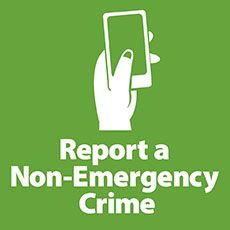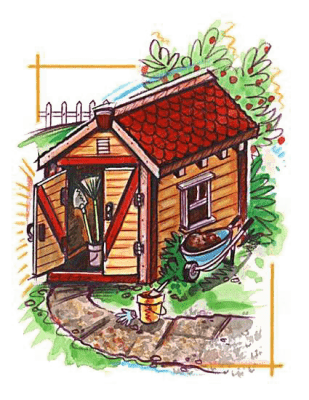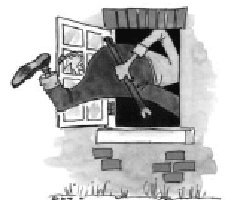 Crime Reports & Advice – April 2016
Crime Reports & Advice – April 2016
Crime reports
Theft from a motor vehicle 29th February 2016 16:45 – Spring Lane
Suspect unknown have removed items from secure vehicle by means unknown causing damage to rear door and interfering with the lock mechanism of side sliding door.
Theft not classified elsewhere 2nd March 15:00 – New Church Road
Suspect unknown has removed a section of copper cable from the external areas of an electrical substation by means unknown.
Theft if not classified elsewhere 16th March 2016 22:30 – Erle Havard Road.
Suspects unknown have taken the victim’s mobile phone after he left it
Theft from a motor vehicle 18th March 2016 18:00 – Upton Close.
Suspects unknown have gained access to a vehicle via the nearside front door by means unknown and removed items from within. No apparent search made, exit by entry.
Other criminal damage to a vehicle (Under £5,000) 44th April 16 20:15 – Armoury Road
Suspect named has made threats to damage her car and her house. Victim has returned a few days later to find that her vehicle has been kicked in the side panels causing around £500 worth of damage.
Crime Advice & Information
- New Community Policing Team,
- Report a Crime Online,
- BT OpenReach? No a Scam,
- Are Key Safes Safe?
- Hack Fraud,
- Get Sheducated,
- Doorstep Traders.
New Community Policing Team
 Colchester’s new “Community Policing Team” has been launched by Essex Police as part of a renewed commitment to local policing that puts partnerships with councils and other organisations at the heart of community safety. The new teams will work in community safety hubs with partners like councils, other Emergency Services, Health providers, charities, Neighbourhood Watch and community groups.
Colchester’s new “Community Policing Team” has been launched by Essex Police as part of a renewed commitment to local policing that puts partnerships with councils and other organisations at the heart of community safety. The new teams will work in community safety hubs with partners like councils, other Emergency Services, Health providers, charities, Neighbourhood Watch and community groups.
Their main focus will be on community safety priorities, solving local problems like high risk anti-social behaviour, local “hot spot” crimes, repeat victims or keeping the night time economy safe.
Assistant Chief Constable Maurice Mason says: “Our renewed commitment to local policing means new teams will work as one with our partners to protect people from harm, talk and listen to communities about their concerns, gather information and help find answers to local problems. Our ambition is for a seamless link with Community Safety Partnership teams across Essex, working together to tackle locally-agreed priorities.
Working alongside those teams will be all the other parts of Essex Police which keeps people safe. That’s three thousand officers working for a safer Essex, including specialist domestic abuse teams, emergency crews responding to 999 calls, detectives investigating serious crime, and our countywide roads policing teams, firearms and police dog teams and officers and staff dealing with cyber-crime and fraud.”
Chief Inspector Elliott Judge, district commander of Colchester, adds: “As well as targeting the crime priorities in your community, officers are dealing with different, more serious types of crime and harm being perpetrated in our communities. It is known that you are far more likely to be a victim of crime in your own home than on the streets where you live. With this in mind our policing priorities will be Child Abuse and Child Sexual Exploitation, Modern Slavery and Human Trafficking and Domestic Abuse.”
More information about our team can be found on our community policing web pages.
 Report a Crime Online
Report a Crime Online
Whatever you need Essex Police for; we want to make it easy for you to do it. For the first time you can report a non-emergency crime to us online.
Our ‘do it online‘ service lets you report non-emergency crime, road traffic collisions and access a range of information and advice easily and conveniently. Online reporting for lost or found property will be added during April. Essex Police has also subscribed to the national ‘knowledge bank’ Ask The Police, also accessible at www.essex.police.uk/doitonline. Ask the Police contains answers to hundreds of often-asked questions about policing from abandoned vehicles to youth issues. Your burning question may already have an answer waiting for you!
Remember though, we still need you to dial 999 in an emergency and you can still call our non-emergency number 101.
BT OpenReach? No a Scam
The following message was received by local police recently:
I received a Bogus supposed BT Openreach call today at 15:40, which was alarmingly convincing – only because I know BT protocols thoroughly did I work out that it was bogus.
The caller stated they were from BT Openreach, and said that due to server problems I am not getting the Broadband Speed I should (which is true), and asked me to do a speed test.
I did this (the caller did not offer which website to use for the test, this started to raise my suspicions) but I ran the test anyway, and got one of my best result ever (still poor at 2.13 down, 0.28 up) – but I know that this is close to the max I can get based on distance from my exchange and being on aluminium cable.
The caller then asked me to go to Google and use joinme.net – NO NO NO – definite scam now.
I used 1471 – caller withheld number – BT would not do that if the call was genuine.
PLEASE – if you get one of these calls, do not proceed.
Webmaster note: joinme.net appears to be a legitimate online meeting service from which it is quite possible the caller had intended gaining access to the PC through their screen sharing features. Such access could be used to plant viruses or trojans.
Are Key Safes Safe?
 Following a burglary in Colchester when a Key Safe was forcibly removed from its placement, forced open and the keys used to access the house, I thought I should give advice on best type of key safe to buy as well as its placement and fixings.
Following a burglary in Colchester when a Key Safe was forcibly removed from its placement, forced open and the keys used to access the house, I thought I should give advice on best type of key safe to buy as well as its placement and fixings.
When buying a Key safe, try to buy a Police approved one which will have the ‘‘Secured by Design” logo attached. These are independently tested to the same security standards that the best quality windows and doors have to achieve. Two examples of these are Keyguard XL and the Supra C500 Key Safe; they are slightly more expensive but are a worthwhile investment.
All Key Safes must be installed into brick or dense concrete, not breeze block or mortar and you must use the recommended fixings to ensure the Key Safe is fixed securely. In the case of the C500 Key Safe, these are self-tapping masonry screws that fix into brick or concrete without the needfor rawl plugs.
Fit the Key Safe in an accessible but unobtrusive place, perhaps next to some shrubs?
Hack Fraud
To avoid becoming a victim of hack fraud, here are five key things to know:
- If you receive a phone call claiming you’ve been hacked, it’s almost certainly a scam. Companies whose data has been breached don’t usually use the phone to notify customers. Likewise, they rarely even use email. They normally send out formal notifications in the mail. If you do get an email that you think might be genuine, don’t click on any links in the message in case it leads to malware. Instead, contact the company independently.
- Breached companies will never ask you to “confirm” your confidential information, so don’t give it to someone who asks.
- Don’t be taken in by messages that seem to include personal information about you. It’s fairly easy for crooks to get their hands on very basic information about you. And on that point, make sure you shred any documents that contain personal information about you, including your name.
- Don’t pay to have hacked data supposedly removed or cleaned up. It can’t be done, except by the organizations that hold the data on their systems and they won’t charge for it.
- If you learn about a company you do business with being hacked, visit their website and/or contact them directly to find out what actions they propose to take to protect you and your data.
Get Sheducated
 Is your garden and shed secure?
Is your garden and shed secure?
The garden and its perimeter
Your garden should be your first line of defence against burglars. If someone can get into your back garden easily without attracting attention, it gives him/her more time to steal from you.
- Keep hedges and fences low at the front of the house so an intruder has nowhere to hide.
- Gravel on paths and driveways will alert you to someone approaching.
- Make sure your fences and gates are in good repair. Trellis fixed to the top of your garden fence and carefully-placed prickly plants will provide extra protection from intruders.
- If there is a gate at the side of your house which leads to the back garden, it should be as close to the front of your house as possible.
- Keep this gate securely locked. A simple bolt is not enough – use a good padlock.
- Install security lighting. Low energy dusk to dawn lighting is environmentally friendly, cheap to run and better for home security than passive infra-red activated lighting.
- Don’t make a burglar’s life easier by leaving tools around which can be used to force entry. Always lock them away securely after use and consider chaining them together with a padlock attached to a hasp and staple.
- Likewise, don’t leave ladders lying around as these can be used by a burglar to reach other parts of your house. Ladders should be chained and padlocked to a strong post or wall.
- Try to avoid leaving things like dustbins lying around they can also be used as a climbing aid.
- Remote-movement detectors can protect costly garden furniture and valuable ornaments such as statues or stone planters. However, these are only suitable for heavy objects not affected by wind or casual vibration. Alternatively, you can anchor these items to the ground using ground anchors designed for this purpose – even valuable plants can be protected in this way.
- Hanging baskets are also worth protecting. Bending the bracket and/or hook so the basket cannot be removed may be enough to deter thieves, although locking brackets are also available for this purpose.
Sheds, garages and outbuildings
Garden sheds are a popular target with burglars as valuable items are often stored in them. Power tools, lawnmowers, cycles, golf clubs, etc., are all attractive to thieves and very expensive to replace.
- Has your shed survived the winter without any damage? If not, don’t delay – fix it today!
- Shed doors are notoriously easy to break into, so strengthen the door and frame if you can. Outside door hinges should be secured with coach bolts or non-return screws. Use strong pad-bars and close shackle padlocks.
- Up-and-over garage doors can be secured by putting padlocks through the inside runners or by fitting padlocks with a hasp and staple on either side of the door. Five-lever mortise locks are the best thing to use on normal solid doors.
- Are the windows secure? Does the glass need replacing? You could use perspex or polycarbonate sheet as a more secure alternative, as long as it is securely fixed. Use a window lock on any windows which can be opened, along with a strong grille or heavy wire mesh panel. Consider using net curtains so people can’t see inside.
- Battery operated alarms may act as a deterrent. If you have a house alarm, you could have it upgraded to include your shed or garage. If the garage is an integral part of your house, make sure the alarm conforms to BS 4737.
Your property
You also need to protect everything you keep in your shed and garage.
- Does your insurance cover the shed and garage and all the equipment stored in them?
- Is everything postcoded so you could identify it if it was stolen?
- Items can be postcoded by a variety of methods (etching, branding, paint stencilling, etc.) Making them easy to identify will make it more difficult for a thief to dispose of them, so they are less likely to be stolen in the first place.
- Keep a record of serial numbers.
- Photograph valuable items and keep the photos somewhere safe.
- Make everything secure inside the shed, so even if someone did break in they wouldn’t be able to walk away with all your valuable items.
- Chain cycles, mowers, ladders and tools to a strong anchor point, such as metal rings fixed in concrete to the floor, and use a close shackle padlock.
- Sheds are not really designed for safe storage, so it might be better to keep a strong lockable box or cage inside your shed. Better still, store valuable items in a more secure place.
- Ask your neighbours to keep an eye on your shed as well as the house and do the same for them in return.
- If your shed is screened from view, cut down some foliage so you’re not providing cover for a thief.
- When you’ve made your garden, shed or outbuildings more secure, remember to lock things away every time. It only takes a minute to pick something up and walk off, so don’t be tempted to leave everything outside while you go inside for a cup of tea. And NEVER leave cycles unlocked.
Natural protection
One of the best ways to keep thieves out of your back garden is to use nature’s own defence mechanisms. A barrier of prickly hedge may be all the protection you need around your property. Here are some suggestions for plants to use. You can also ask for advice at your local garden centre.
- BARBERRY (Berberis)
- BLACKTHORN (Prunus Spinosa)
- BUCKTHORN (Rhamnus)
- FIRETHORN (Pyracantha)
- GORSE (Ulex Europaeus)
- HAWTHORN (Crataegus Monogyna)
- HEDGING ROSE (Rosa Rugosa)
- HOLLY (Ilex)
- MAHONIA JAPONICA
- ORNAMENTAL BRAMBLES (Rubus)
- QUINCE (Chaenomeles)
- ROSES – eg climbing and rambling roses, plus Rosa Pteracantha
- SEA BUCKTHORN (Hippaphae Rhamnoides)
Neighbourhood Watch
And finally . . . are you a member of Neighbourhood Watch? If not, would you like to join a scheme, or perhaps even start one yourself?
For further information and advice please contact the crime reduction officer or problem solving officer at your local police station on 01268 532212.
Doorstep Traders.
Doorstep/Rogue traders are operating in Essex trying to obtain work related to block paved driveways, garden work or tree cutting, roofing or any other household repair or maintenance.
Never agree to have work carried out by traders who knock on your door offering these services and always thoroughly check out leaflets as addresses provided can be false with telephone numbers that stop working if you have a problem with the work. You can also be provided with guarantees that are worthless.
We would always advise residents to consider using one of our Buy With Confidence businesses who have been audited and approved by Trading Standards. The nearest three to your postcode can be found by calling the national consumer helpline on 03454 040506 or www.buywithconfidence.gov.uk
We would ask all residents to look out for household repair and maintenance activity at the homes of elderly neighbours, friends or family members.
Residents who do get caught out by doorstep/rogue traders are often too embarrassed to report it. If you are concerned, call the helpline with the information.
Sue Bunney
Trading Standards







